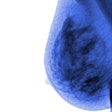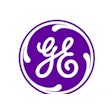Asking people to refer friends and family members to subsidized health screening services is a good way to boost participation by uninsured or underinsured participants, according to a new study by researchers at RTI International, the Minnesota Department of Health, and the University of Minnesota.
The study, published in the July/August issue of the American Journal of Health Promotion, looked at the effectiveness of using financial incentives to promote peer referrals for a free mammography program for underinsured women.
Lead author Brian Southwell, PhD, and colleagues divided 3,000 participants into three groups: one group was offered a $20 incentive each time someone they referred was screened, a second group was offered $5 for each name and valid address or phone number they provided (regardless of whether that person completed screening), and a third group was offered no financial incentive for referrals.
Southwell's team found that financial incentives boosted the number of referrals received; however, simply asking people to refer others without any additional financial incentive actually yielded as many scheduled appointments.
In fact, while offering financial incentives increased the likelihood of referral and the number of names submitted, it may also have increased pressure to submit names of people less likely to get screened, according to the researchers. Offering no incentive led to fewer referrals than offering money, but those referrals were more likely to lead to a scheduled screening.



















